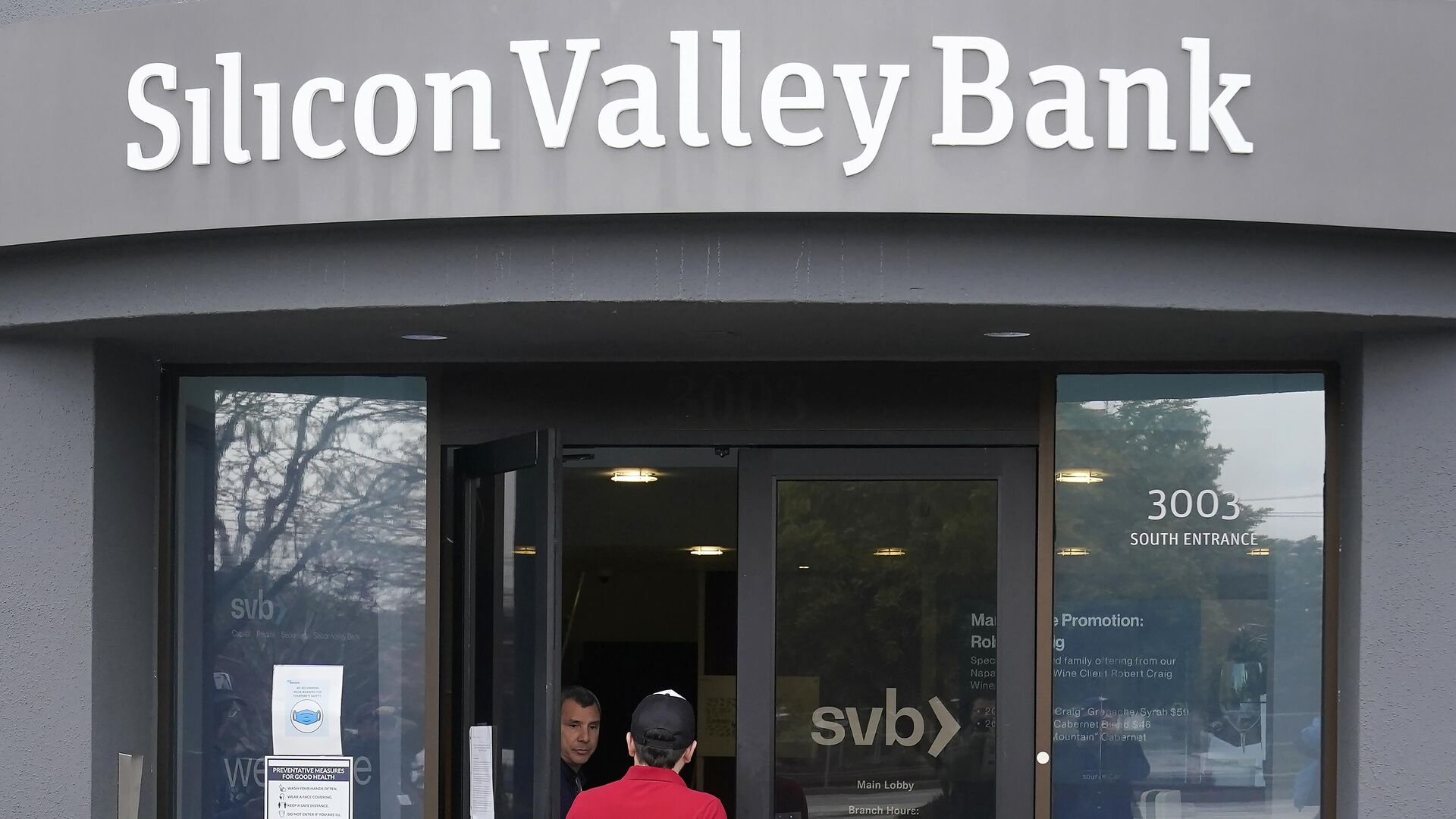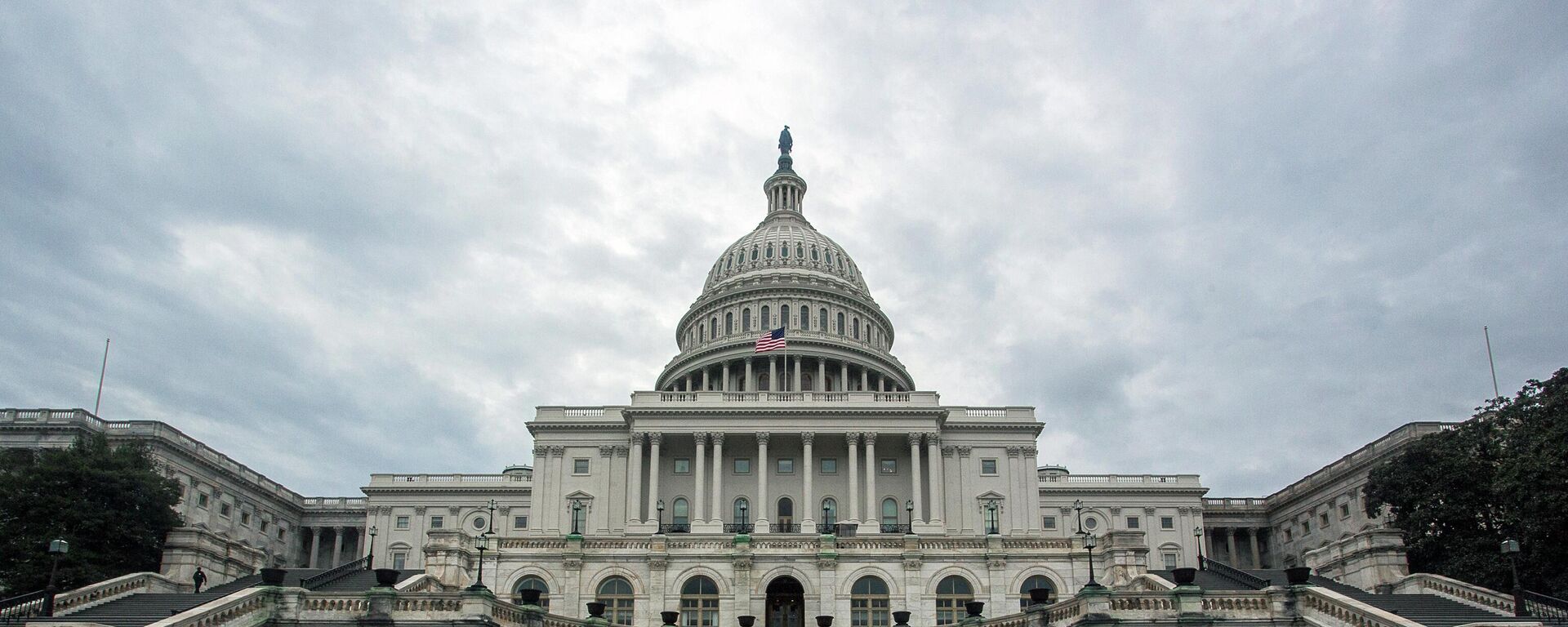https://sputnikglobe.com/20230430/no-rising-from-ashes-svb-board-mulled-project-phoenix-to-save-bank-long-before-collapse--1109988430.html
No Rising From Ashes: SVB Board Mulled 'Project Phoenix' to Save Bank Long Before Collapse
No Rising From Ashes: SVB Board Mulled 'Project Phoenix' to Save Bank Long Before Collapse
Sputnik International
SVB Board mulled the plan to unwind a portfolio of bonds worth $20 bn to cover losses. However, it was alleged that such kind of sale would anger investors.
2023-04-30T16:02+0000
2023-04-30T16:02+0000
2023-04-30T16:02+0000
economy
silicon valley bank collapse
banks
crisis
us
https://cdn1.img.sputnikglobe.com/img/07e7/03/0c/1108310599_0:1:3073:1729_1920x0_80_0_0_c75edcf70caa545dc11c4b5aec421679.jpg
Silicon Valley Bank (SVB) management discussed the project of selling up to $20bn in bonds last November under plans to save the company, a British business newspaper has reported citing newly released documents. According to the report, the board struggled with liquidity long before the collapse in March.The idea behind codenamed “Project Phoenix” was to sell a portfolio of bonds to cover losses. However, authors of the project warned that “there is no silver bullet” that will solve the problem of increasing deposit outflow and they forecasted negative investor reaction. This prediction turned out to be true – when management launched security sales in March in a bid to save the troubled bank, the market cap of SVB fell 60% in one day. The next day the bank was seized by regulators and declared bankrupt. The SVB collapse triggered unrest in the banking industry with Signature Bank coming under control of the Federal Deposit Insurance Corp and First Republic Bank being rescued by a JP Morgan Chase-led consortium of financial institutions.The review of the SVB collapse, supervised by economists from Federal Reserve, implied that the American regulator must make greater emphasis on stress testing of banks with multiple scenarios. This move will allow the capture of a wider range of risk and explore changes to liquidity rules and other reforms that could improve resiliency.
https://sputnikglobe.com/20230423/for-the-people-at-least-nine-us-lawmakers-sold-troubled-stock-before-svb-crisis-1109779429.html
Sputnik International
feedback@sputniknews.com
+74956456601
MIA „Rossiya Segodnya“
2023
News
en_EN
Sputnik International
feedback@sputniknews.com
+74956456601
MIA „Rossiya Segodnya“
Sputnik International
feedback@sputniknews.com
+74956456601
MIA „Rossiya Segodnya“
economy, svb collapse, silicon valley bank, banking crisis, bank run
economy, svb collapse, silicon valley bank, banking crisis, bank run
No Rising From Ashes: SVB Board Mulled 'Project Phoenix' to Save Bank Long Before Collapse
SVB analysts reportedly devised a desperate plan to save the bank in fall 2022, however its spring implementation only fueled the crisis.
Silicon Valley Bank (SVB) management discussed the project of selling up to $20bn in bonds last November under plans to save the company, a British business newspaper has reported citing newly released documents.
According to the report, the board struggled with liquidity long before the collapse in March.
The idea behind codenamed “Project Phoenix” was to sell a portfolio of bonds to cover losses. However, authors of the project warned that “there is no silver bullet” that will solve the problem of increasing deposit outflow and they forecasted negative investor reaction.
This prediction turned out to be true – when management launched security sales in March in a bid to save the troubled bank, the market cap of SVB fell 60% in one day. The next day the bank was seized by regulators and declared bankrupt.
The SVB collapse triggered unrest in the banking industry
with Signature Bank coming under control of the Federal Deposit Insurance Corp and First Republic Bank being rescued by a JP Morgan Chase-led consortium of financial institutions.
The review of the SVB collapse, supervised by economists from Federal Reserve, implied that the American regulator must make greater emphasis on stress testing of banks with multiple scenarios. This move will allow the capture of a wider range of risk and explore changes to liquidity rules and other reforms that could improve resiliency.



